The views expressed in our content reflect individual perspectives and do not represent the authoritative views of the Baha'i Faith.
Pronghorn are fascinating creatures. Commonly called “antelope,” they also have many colloquial names; my favorite is “speed goats.”
After all, they’re arguably the fastest animals on Earth. True, Africa’s cheetahs can achieve speeds of up to 70 miles per hour in short bursts. But pronghorn can crank it up to 55 mph or more and maintain that pace across miles.
In addition to astounding speed and endurance, they have other attributes which enable them to thrive across their vast, lonely and harsh natural range. They have thin hides, but their hollow hair has superb insular properties, allowing them to endure temperatures that can swing from triple digits on the Fahrenheit scale at the peak of summer to double digits below zero during the depths of winter. Their huge eyes give them vision as keen as a human looking through a powerful pair of binoculars.
So, are pronghorns members of the antelope or goat families? Trick question, because the answer is neither. Actually, pronghorns are unique creatures, meaning they have no living relatives—they truly are one of a kind, and iconic to places such as my home state of Wyoming. It’s said, probably truthfully, that Wyoming has more pronghorn than people.
But it recently occurred to me that these animals symbolize the people here in Wyoming well.
A small band of pronghorn frequent the open fields past the end of my street. When I think of Wyoming’s people, I initially think of the pronghorn band’s lead buck. During the summer and early fall, I sometimes spot him standing near the fence marking the border between asphalt and prairie grass. With his feet planted firmly and head high, he appears confident, even brash. He seems certain of his place and prepared to take on any challenge, but perhaps unaware he’s part of and ultimately dependent upon a vast and inexorably linked network of life comprising a massive array of fauna and flora.
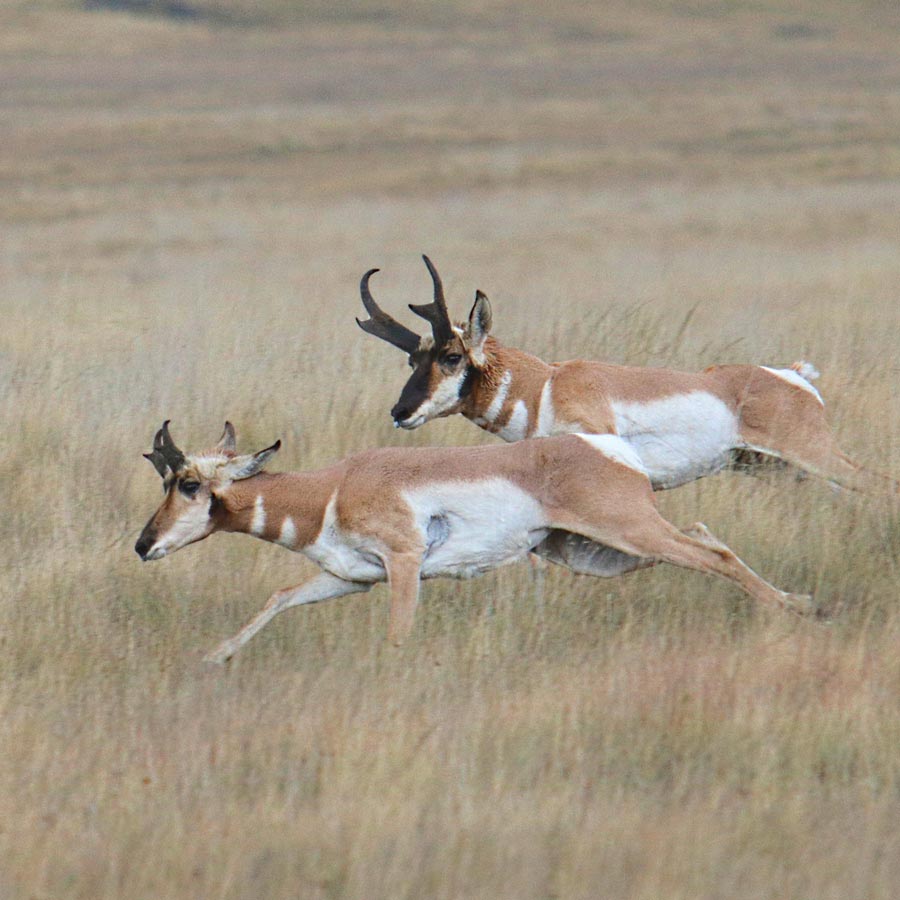 Rural folks like me have a lot in common with the pronghorn. It’s all too easy for us to be unaware of or uncaring toward the larger world, assuming a sense of complete independence from the “outside,” its ways, challenges and problems. But humanity’s common Creator, through a series of divine messengers, has continually reminded us of the interconnectedness between the world’s peoples and environment; a shared fate, a common thread of justice.
Rural folks like me have a lot in common with the pronghorn. It’s all too easy for us to be unaware of or uncaring toward the larger world, assuming a sense of complete independence from the “outside,” its ways, challenges and problems. But humanity’s common Creator, through a series of divine messengers, has continually reminded us of the interconnectedness between the world’s peoples and environment; a shared fate, a common thread of justice.
Baha’is believe that Baha’u’llah, whom we recognize as the messenger of God for this age, came to bring light and wisdom to all people. So I wonder, what might that mean for rural and small-town people scattered across regions so often easily overshadowed by the goings-on in the world’s complex and busy metropolitan areas?
It strikes me that a retreat into the countryside or wildlands is a common thread among the figures Baha’is call the manifestations or messengers of God.
Baha’u’llah, during one point in his earthly ministry, sought refuge in remote areas, living a simple, basic existence and interacting with virtually no one. Before embarking on his mission as the Buddha, Siddhartha Gautama withdrew to meditate beneath the Bodhi Tree. Moses ascended the mountain to answer the Lord’s call; Muhammad received divine revelation in a cave after removing himself from the bustle of Mecca. One of my favorite Bible passages describes Christ Jesus’ struggle with and ultimate triumph over temptation while alone in the wilderness.
Through these divine messengers, God calls us to simplicity, gratitude, humility, and closeness to the Earth. This ideal seems increasingly scarce; even in far-flung places, especially when technology, banal entertainment and the pursuit of money and material acquisition floods our consciousness with white noise, drowning out the exquisiteness of our existence.
But it is in these far-flung places, I think, that the human spirit feels closer at hand. In mere minutes, I can be in places metropolitan people plan for months and travel for hundreds or even thousands of miles to reach; places where I might spend all day without seeing another human being; places in which it’s that much easier to feel the presence of my Creator. While city folk might seek them as a temporary and novel escape, rural folk are more likely to have a direct and symbiotic connection to them, like the lead buck in that pronghorn herd. We venture out not only for fun, but to do such things as gathering fuel for fireplaces or stoves. Many of us go to streams, lakes, fields or forests to fish and hunt for our own food, or attend a local farmer’s market to buy fresh, wholesome goods directly from independent local producers. My family, for example, buys or trades for eggs from a local gentleman with a couple of acres and a few chickens.
Indeed, one of the Baha’i Faith’s central figures, Abdu’l Baha, said that without agriculture, a true community—and by extension, civilization itself—cannot exist: “The fundamental basis of the community is agriculture, tillage of the soil. All must be producers.” – The Promulgation of Universal Peace, p. 217.
Personally, I’ve delved only a little into direct involvement with agriculture, having worked as a young man during summer breaks from college on a Colorado ranch, managed by my sister and brother-in-law, with natural meadow grass hay as the primary crop. It was brutally physical work, a long way from anywhere that could even be called nowhere, but the toil was cleansing. I wish more young people could have similar experiences.
It is also a fundamental teaching of the Baha’i Faith that our physical existence reflects physical reality, therefore, the effects of physical toil and nearness to nature can mirror necessary spiritual qualities:
Thy heart is my home; sanctify it for My descent. Thy spirit is My place of revelation; cleanse it for My manifestation. – The Hidden Words, p. 17.
So I come around again to the pronghorn. It’s late winter as I write this. On days such as today, warm weather and green foliage seem impossibly far off, but they will come. The image of that brash buck fades in anticipation of the coming sight of many pronghorn does standing diligently by as their fawns wobble to their feet. I imagine the people of the farms, small towns and countryside could be likened to those fawns—a bit unsteady, unsure, perhaps a little frightened by a new, emerging world that must seem impossibly huge.
Though God and His messengers are often framed in patriarchal terms, I think it behooves us to remember their maternal qualities, which I see reflected in those does: the givers of life, vigilant guides and protectors, beautiful creatures surrounded by a beautiful land:
I loved thy creation, hence I created thee. Wherefore, do thou love Me, that I may name thy name and fill thy soul with the spirit of life. – Ibid., p. 4.





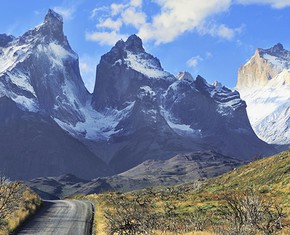
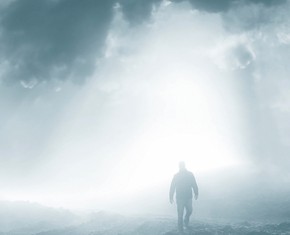
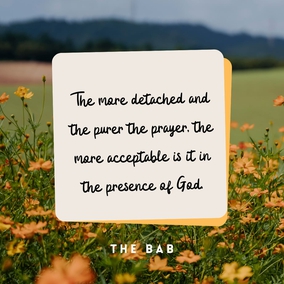

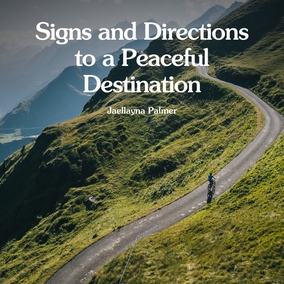
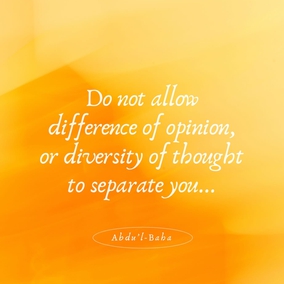

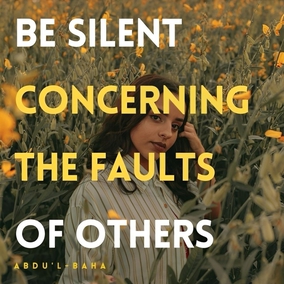



Comments
Sign in or create an account
Continue with Googleor